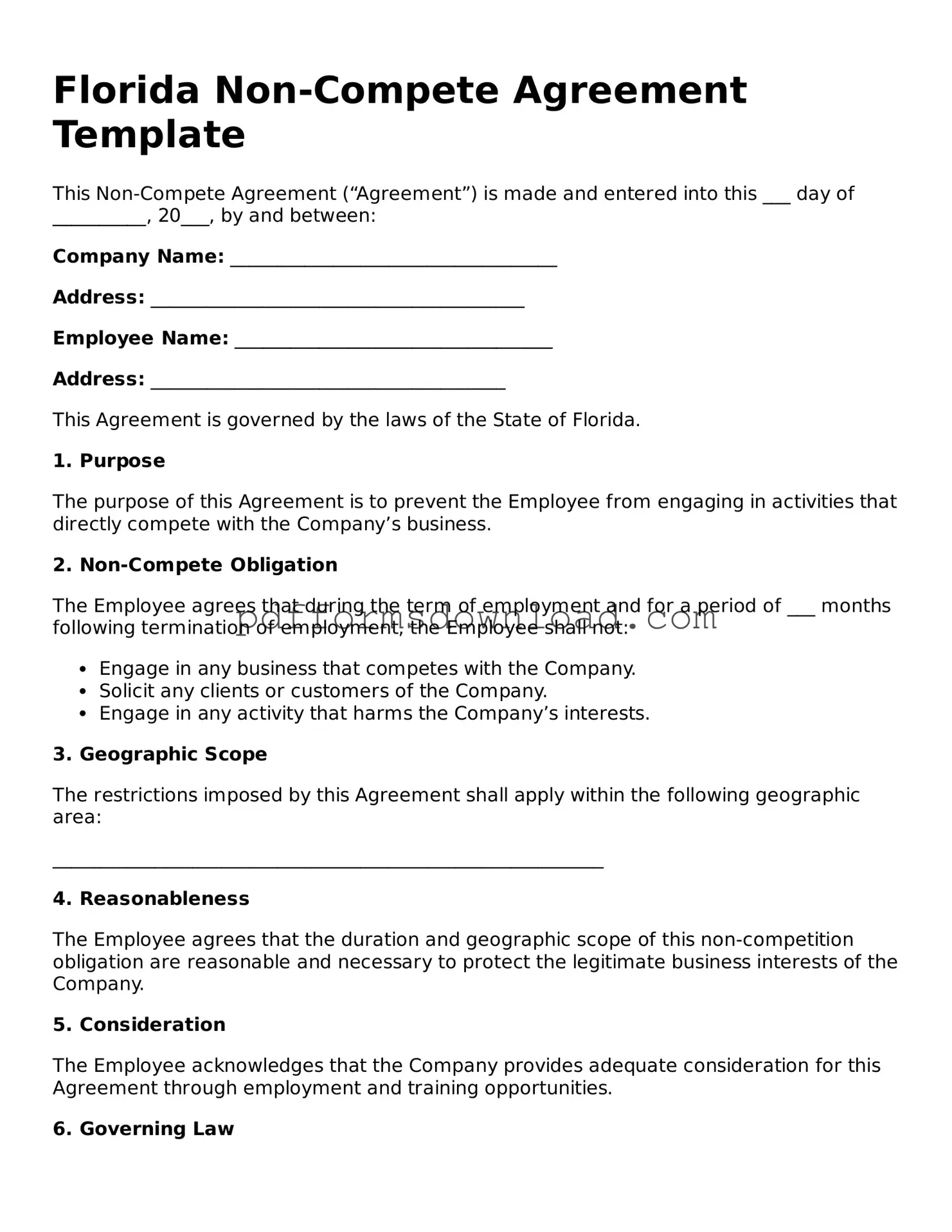What is a Florida Non-compete Agreement?
A Florida Non-compete Agreement is a legal contract between an employer and an employee that restricts the employee from engaging in activities that compete with the employer's business after leaving the company. These agreements are designed to protect the employer's business interests, including trade secrets, customer relationships, and proprietary information.
What are the key elements of a valid Non-compete Agreement in Florida?
For a Non-compete Agreement to be enforceable in Florida, it must be reasonable in terms of duration, geographic area, and the scope of restricted activities. Generally, the agreement should protect legitimate business interests and not impose undue hardship on the employee. Courts will evaluate these factors to determine whether the agreement is fair and enforceable.
How long can a Non-compete Agreement last in Florida?
In Florida, the duration of a Non-compete Agreement can vary, but it typically ranges from six months to two years. The reasonableness of the duration depends on the nature of the business and the specific circumstances surrounding the agreement. Courts will assess whether the length of time is necessary to protect the employer's interests.
Can a Non-compete Agreement be enforced if the employee is terminated?
Yes, a Non-compete Agreement can still be enforced even if the employee is terminated, provided that the agreement is valid and reasonable. However, if the termination was without cause, courts may scrutinize the enforceability more closely. The specific terms of the agreement and the circumstances surrounding the termination will play a crucial role in this determination.
Are there any exceptions to Non-compete Agreements in Florida?
Yes, there are certain exceptions. For instance, Florida law prohibits enforcing a Non-compete Agreement against an employee who is terminated without cause. Additionally, agreements that are overly broad or that do not protect legitimate business interests may be deemed unenforceable. Employees may also have defenses based on public policy considerations.
What should an employee do if they believe their Non-compete Agreement is unfair?
If an employee believes their Non-compete Agreement is unfair or overly restrictive, they should consider consulting with an attorney who specializes in employment law. An attorney can help evaluate the agreement's terms, assess its enforceability, and provide guidance on potential options for negotiation or legal action.
Can Non-compete Agreements be negotiated?
Yes, Non-compete Agreements can often be negotiated before signing. Employees should feel empowered to discuss terms that seem unreasonable or restrictive. Employers may be willing to adjust the duration, geographic scope, or specific activities prohibited, especially if they value the employee’s skills and contributions.
What happens if someone violates a Non-compete Agreement in Florida?
If someone violates a Non-compete Agreement, the employer may seek legal remedies, which can include injunctive relief to prevent further competition and monetary damages for any losses incurred. Courts will review the terms of the agreement and the circumstances of the violation to determine the appropriate course of action.

